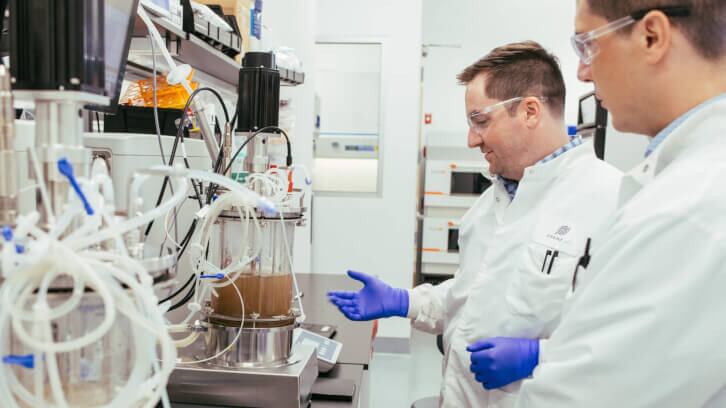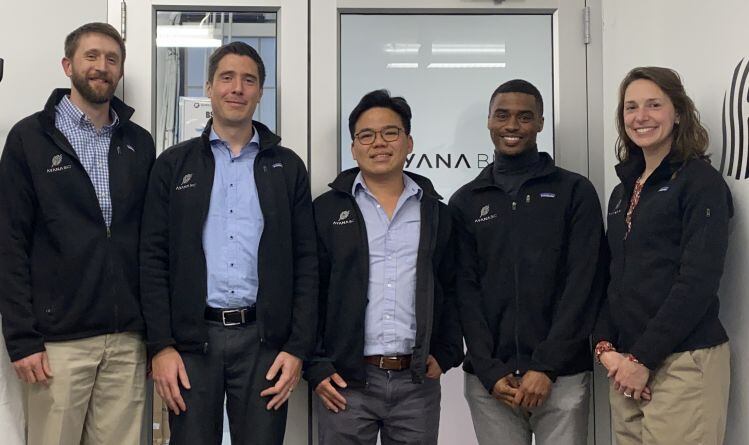Ayana Bio’s plant cell technology is a means to create plant materials without growing plants in the ground. As we reported previously, the plant cell cultivation technology starts by identifying the best plant cell lines—just like traditional plant breeding. These plant cells are propagated from real plants (similar to stem cells) and assessed throughout the cell cultivation process for important characteristics like bioactive potency, stability and purity.
The company then provides the nutrients the plant cells need to grow and multiply. “This process is similar to brewing beer, but instead of growing yeast or bacteria, we grow plants directly from their cells in stainless steel tanks,” Frank Jaksch, CEO of Ayana Bio, told us earlier this year.
Jaksch added that, with plant cell cultivation, the plant cell is fully propagated in a matter of weeks, and the company harvests it as an ingredient for health and wellness products.
The company is a spinoff from synthetic biology specialist Ginkgo Bioworks and is exploring a variety of health-promoting components found in saffron, ginseng, ginger, berries, echinacea, and cacao.
Earlier this year, the company announced the launch of plant cell-cultivated lemon balm and echinacea ingredients, for use in supplement formulations for sleep, mood, and immune support.
New lab
The new lab, which is located in the same building as Ayana Bio’s strategic partner, Ginkgo Bioworks, will reportedly serve as the nucleus for Ayana Bio’s pursuit of advancing plant cell-cultivated production systems to create a diverse range of high-quality and cost-effective ingredients.
“Ayana Bio’s new lab integrates indoor plant cultivation systems, cell biology, process and ingredient development to streamline an efficient workflow from plant cells to final products,” explained Effendi Leonard, co-founder and chief technology officer of Ayana Bio.
“Our partnership with Ginkgo is complementary and empowers us to identify optimal starting points to scale diverse plant cells, ultimately generating superior and cost-effective ingredients.”
The company said in a press release that the technology housed in the new lab will make plant cell-cultivated ingredients scalable through its proprietary hardware and production process that can accommodate a variety of cell lines simultaneously.
“Unlike previous plant cell cultivation processes, Ayana Bio can use the same workflow to manufacture all plant materials, allowing for a large volume of many different high-value products while keeping costs low. The current plant powder market is projected to produce $20.8 billion in revenue in 2023,” stated the release.
“As Ayana Bio makes leaps in our commercialization capabilities, this new lab stands as a testament to our unwavering dedication to providing the most essential plant bioactives for nutrition-rich formulations,” said Jaksch. “It’s been rewarding to already open our doors to interested partners and showcase the transformative capabilities we employ to cultivate and scale plant materials, liberating ourselves from the constraints of agriculture.”



